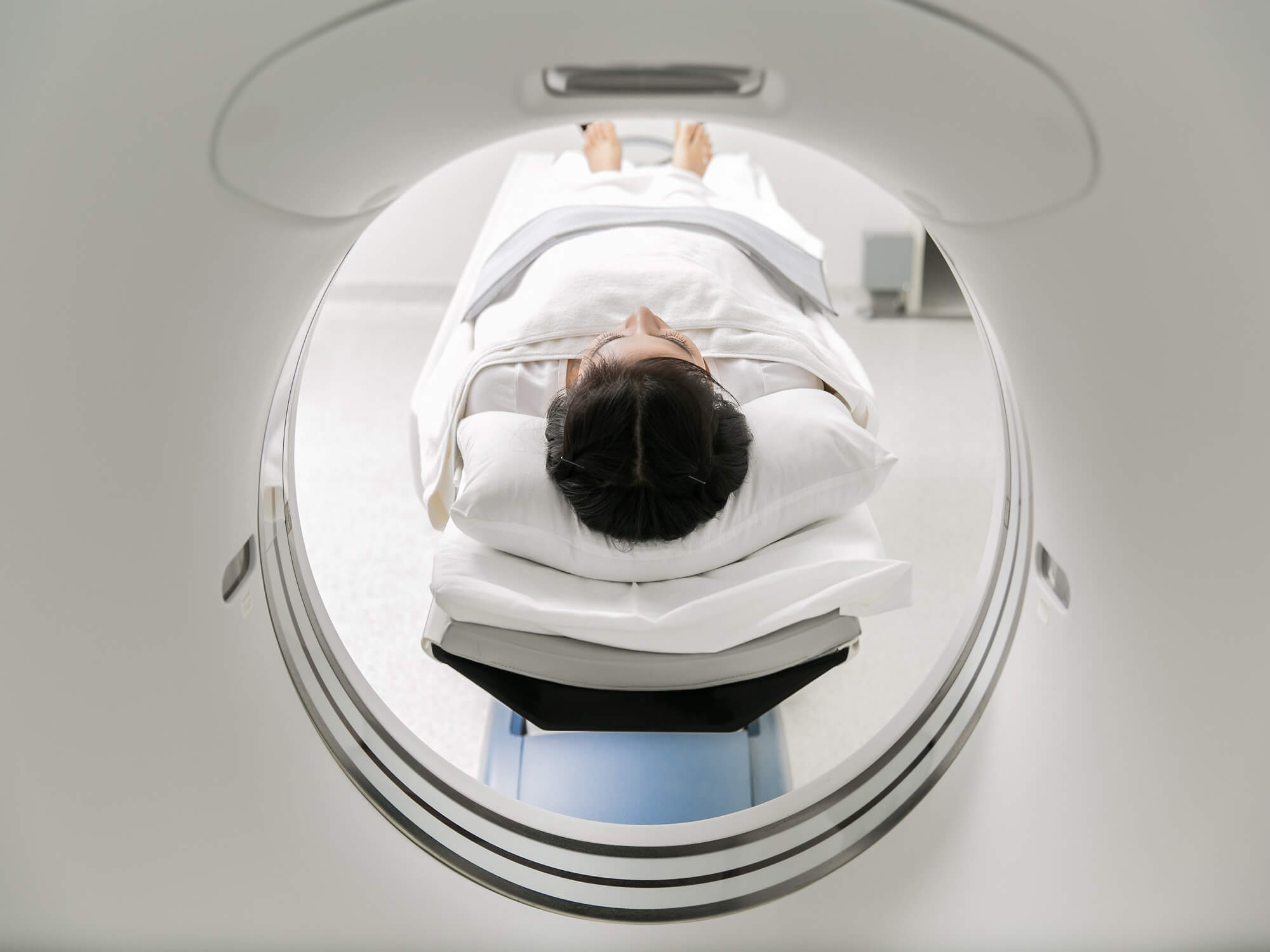CT Scanning of the Spine

-
CT scanning—sometimes called Computed Tomography or CAT scanning—is a noninvasive medical test that helps physicians diagnose and treat medical conditions.
CT scanning combines special x-ray equipment with sophisticated computers to produce multiple images or pictures of the inside of the body. These cross-sectional images of the area being studied can then be examined on a computer monitor, printed or transferred to a CD.
CT scans of internal organs, bones, soft tissue and blood vessels provide greater clarity and reveal more details than regular x-ray exams
-
Why should I do it ?
-
CT scanning of the spine is also performed to:
- Assess spine fractures due to injury.
- Evaluate the spine before and after surgery.
- Help diagnose spinal pain. One of the most common causes of spinal pain that may be diagnosed by CT is a herniated intervertebral disk. Occasionally, this diagnosis is made using CT myelography.
- Accurately measure bone density in the spine and predict whether vertebral fractures are likely to occur in patients who are at risk of osteoporosis.
- Assess for congenital anomalies of the spine or scoliosis.
- Detect various types of tumors in the vertebral column, including those that have spread there from another area of the body. Some tumors that arise elsewhere are first identified by finding deposits of malignant cells (metastases) in the vertebrae; prostate cancer is an example.
- Guide diagnostic procedures such as the biopsy of a suspicious area to detect cancer, or the removal of fluid from a localized infection (abscess).
-
Any preparations needed?
- You should wear comfortable, loose-fitting clothing to your exam.
- Metal objects, including jewelry, eyeglasses, dentures and hairpins should be left at home or removed prior to your exam. You may also be asked to remove hearing aids and removable dental work. Women will be asked to remove bras containing metal underwire. You may be asked to remove any piercings, if possible.
- You should inform the technologist if you have a pacemaker.
- You may be asked not to eat or drink anything for a few hours beforehand, especially if a contrast material will be used in your exam.
- You should inform your physician of all medications you are taking and if you have any allergies.
- Inform your doctor of any recent illnesses or other medical conditions and whether you have a history of heart disease, asthma, diabetes, and kidney disease or thyroid problems.
- Women should always inform their physician and the CT technologist if there is any possibility that they may be pregnant.
- Your diet will be restricted to clear liquids the day before the examination
- Be sure to inform your physician if you have heart, liver or kidney disease to be certain that the bowel prep will be safe.
-
CT scanning of the spine is also performed to: